
- Skip to main content
- Skip to secondary menu
- Skip to primary sidebar
- Skip to footer
Enfoque Educación
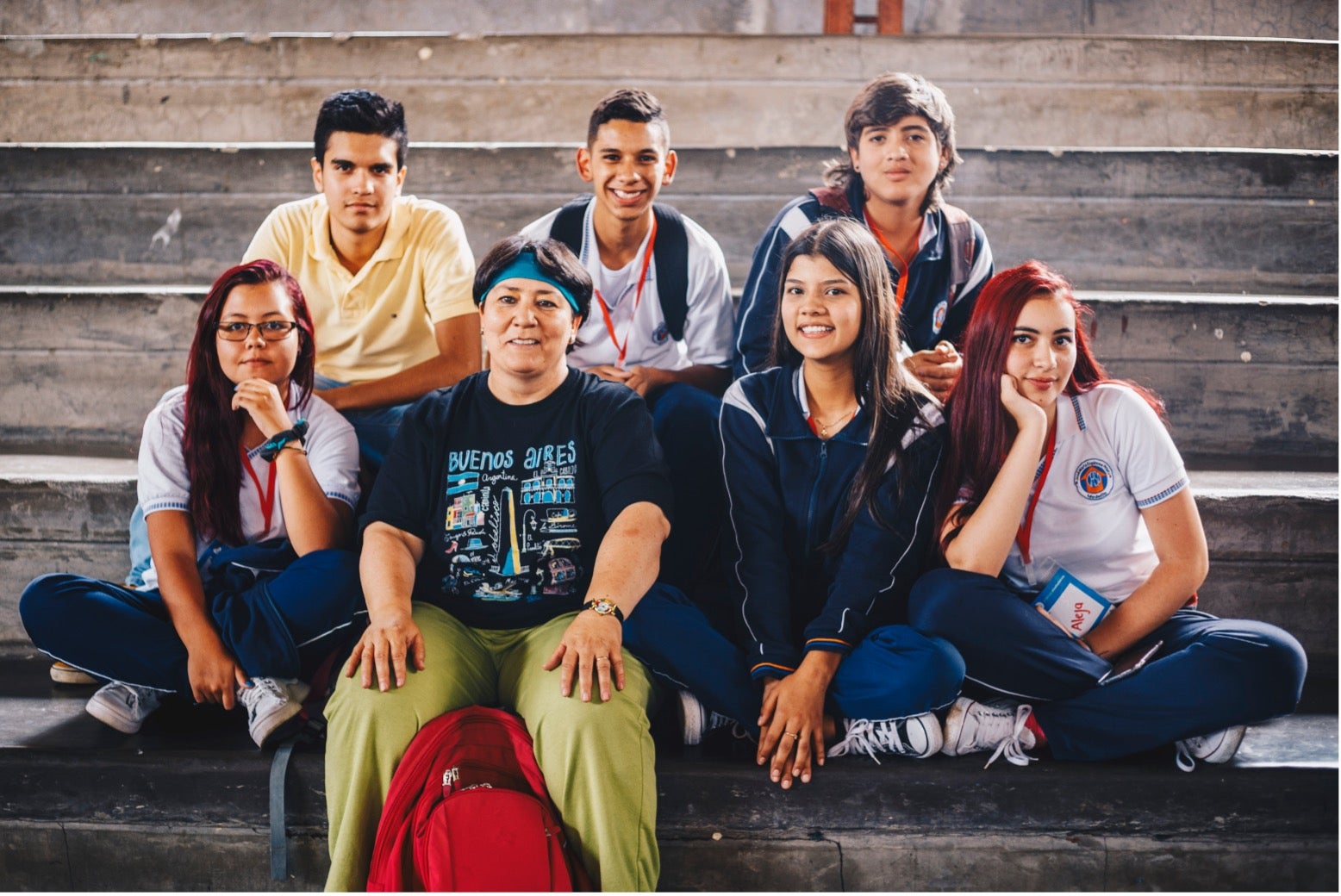

Youth Skills Development: Preparing Young People for the Future
July 15, 2022 por Liliana Serrano Pájaro - JungKyu Rhys Lim - Cecilia Rodríguez Alcalá 1 Comment
The COVID-19 pandemic widened pre-existing opportunity, skills, and achievement gaps, with devastating impacts on our future generations. It has been more than two years and a half since the pandemic has changed the lives of 165 million students in Latin America and the Caribbean (LAC), who, on average, lost 237 days of school and faced tremendous learning losses.
In fact, the latest IDB flagship report highlighted the following:
- Learning losses represent more than an entire year of schooling
- The risk of dropping out of school is now 2.5 times higher
- If we fail to act, young people in Latin America and the Caribbean (LAC) will see a decrease in their annual income of between $15,000 and $30,000 over their lifetime due to lower educational achievement.
Viktor Frankl wrote, “In times of crisis, people reach for meaning. Meaning is strength. Our survival may depend on our seeking and finding it.”
In commitment to their communities, youths are transforming our societies in many ways: as activists working to close gender gaps, combat climate change, and reduce violence; as entrepreneurs creating innovative products; as scientists supporting efforts to address COVID-19; as artists keeping culture alive; and as changemakers in academia, governments, and civil society shaping our democracy.
Young leaders in LAC are raising their voices and calling for economic justice, equality, and rights- including quality education- blazing a path forward for humanity.
Skills for Life in the 21st Century
At the Inter-American Development Bank (IDB), we are implementing a roadmap to prepare educators and students for today’s challenges and future opportunities. As part of the IDB’s 21st Century Skills Initiative , we are helping countries transform their education systems by working alongside stakeholders from public, private, and civil society sectors.
We are also working with more than 50 coalition partners to equip young people with skills for life, employment, and entrepreneurship.
The 21st Century Skills Initiative has programs and knowledge products in six key areas: art, citizenship, digital skills, behavioral science, sports, and mindfulness, which all aim to develop transversal skills. We believe in lifelong education, integrating both formal and non-formal education, to provide flexible and personalized learning experiences.
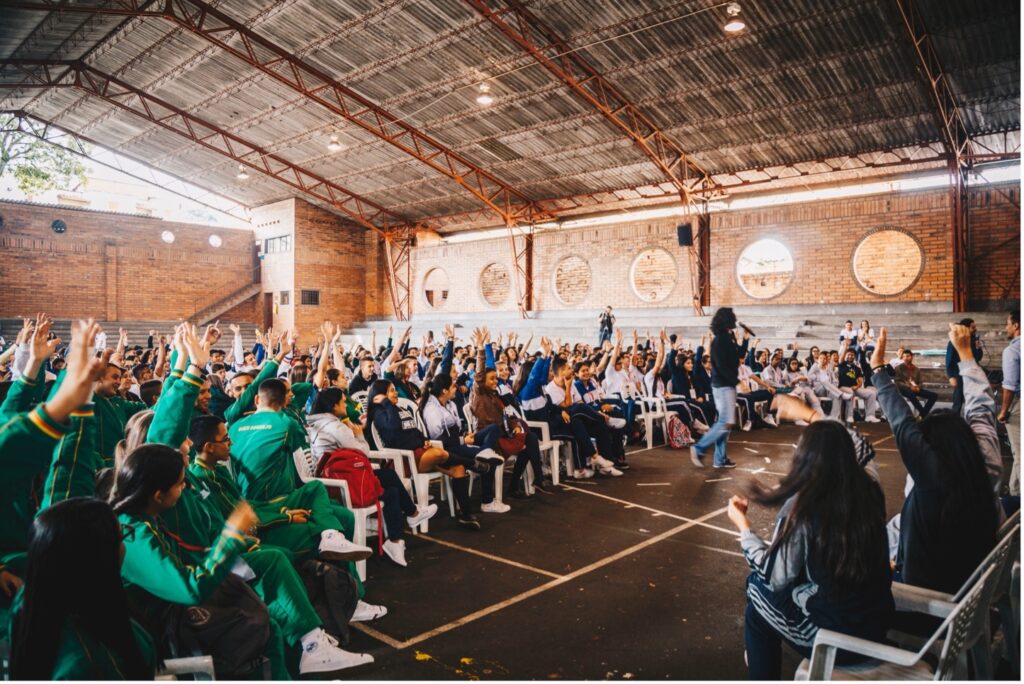
Four Key Skills Youth Need in the 21st Century
Transversal skills enable young people to reinvent themselves throughout all stages of life, adapt to changing and diverse circumstances, and identify opportunities for growth amid differences. Among them, 21st century skills, or transversal skill s that people need in the 21st century , include:
- Digital skills (such as computational thinking)
- Advanced cognitive skills (such as critical thinking and problem-solving)
- Executive function-related skills (such as self-regulation and metacognition)
- Socio-emotional skills (such as self-esteem, adaptability , creativity , perseverance , and empathy).
We consider these skills are both transversal and foundational, as they are widely transferable to various contexts, not specific to a certain job, task, sector, discipline, and occupation, and key competencies for individuals to thrive.
In sum, 21st century skills help individuals of all ages to reinvent themselves throughout life, and adapt to changing and diverse circumstances, while navigating new and significant challenges including climate change, migration, aging, and the Fourth Industrial Revolution.
Transforming Youth for the Future: Skills for Life Series
As a part of the 21st Century Skills Initiative’s efforts to create applicable knowledge to help generate impactful solutions, through IDB Skills for Life Series, IDB has introduced more detailed information about transversal skills -such as learnability , digital skills , digital literacy , critical thinking, creativity , media literacy , and social skills for inter-ethnic cohesion- to address the strategic importance of equipping young people with skills for employment, entrepreneurship, and life.
In this series, distinguished education experts and professionals share their insights and knowledge about different transversal skills.
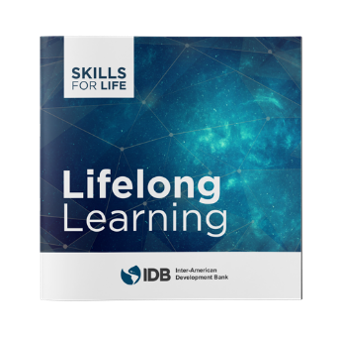
Systems of learning need to adapt to a new normal of global life . Alarm bells have been ringing for the last decade about the future of work and the changing skills demands brought on by technology and automation. Communities, regions, and countries need to make strategic investments in redesigning today’s learning systems into systems of lifelong learning that will best position them and their workforce in a globally competitive environment. This skills brief offers recommendations on how to properly enable lifelong learning systems. Learn more here .
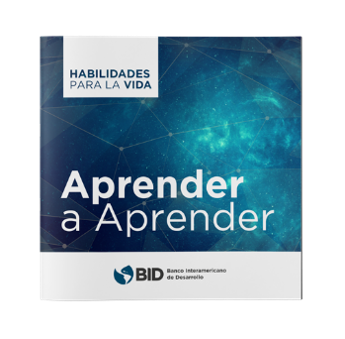
Learning how to self-regulate the learning processes to make efforts to learn more effectively is a key life skill. Not surprisingly, one of the most important characteristics of successful learners is their capacity for self-regulation. In this brief, Hector Ruiz Martin shares expert insights on how to regulate one’s learning processes is nothing other than learning to learn. Download the report here .
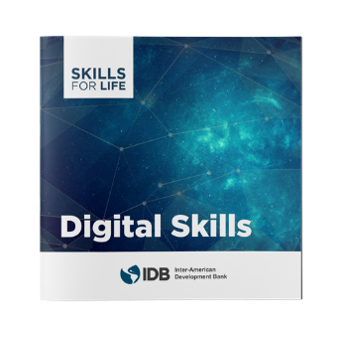
Digital skills are becoming more relevant than ever, because of the digital revolution that we are experiencing in the labor market, but also due to the accelerated needs for them that COVID-19 brought about. There have been efforts to help develop and assess digital skills. Yet, despite these efforts, many people still face difficulties in developing an appropriate level of digital skills. Download this brief and learn how we can develop, train, and measure digital skills, as well as the implications of training and measurement of digital skills.

The COVID-19 pandemic has brought such chronic stress to the lives of young children on a scale not seen in modern times. Mental health experts warn that the chronic stress of young children has substantially increased by the COVID-19 pandemic and is reported to worsen over as stressors stemming from this crisis have caused sudden and ongoing disruptions in multiple domains of daily life. Download this report and l earn more here .
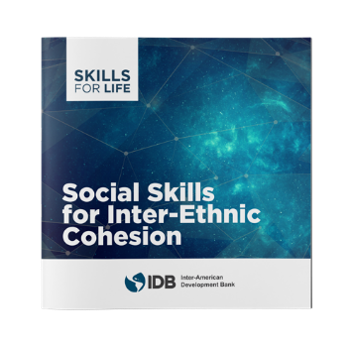
In this brief , we examine the concept of literacy and digital literacy. Then, we review the latest digital literacy studies in the United Nations Educational, Scientific and Cultural Organization (UNESCO), the European Commission, the United Kingdom, and the United States. Lastly, we provide suggestions by comparing digital literacy studies, including ICT studies, in South Korea with international literacy assessment metrics. This brief aims to contribute to developing digital literacy measurements applicable to ICT in education internationally and mitigate the digital divide. Learn more here .

Media literacy education is a tool for combating mis/disinformation in a time where there is so much uncertainty. The lack of credible news means that we are left with news stories driven by propaganda, misinformation, or manipulated content and even fiction or just fallacy. This impacts every person in every situation and influences the conversations, policy, and beliefs whether we are talking about race, gender, economics of poverty, climate, and so much more. Learn more here .

Creativity is a critical human 21st-century skill that allows us to produce novel and valuable ideas. Creative ideas are original and make a unique contribution to any field, but also, they help to solve complex problems that humanity is continuously facing. Creativity is essential at the individual level to solve problems on the job and in daily life. This brief will discuss how creativity has been conceptualized and will share some strategies to foster creativity in a learning environment and the workplace. Also, it will discuss how technology impacts creativity development. Learn more here .

As we face the ravages of COVID-19, climate change, economic disparities, and social injustice, the world needs listening skills more than ever. Listening skills are one of the core life skills that are critical in life, work, and school. Listening skills enable children to access information, develop other skills, such as empathy, and critical thinking, and have better academic performances and lives. Listening skills are one of the most desired and needed in workplaces. In this brief, we explain the importance of listening skills and listening processes. Then, we review how policymakers can help develop listening skills. Lastly, we review how policymakers can measure and assess listening skills. Learn more here .
To this end, the curriculum reform is at the top of the education agenda today. Skills gaps are growing between what society and the labor market need, and what formal systems of education and training provide. The curriculum is the primary instrument for education systems to translate what society needs in terms of human capital, into specific content, competencies, and skills. This new IDB report examines how different education systems inside and outside the Latin American and Caribbean region have incorporated 21st century skills in their curriculum, and the enabling conditions to translate the intended curriculum into a de facto curriculum in the classroom. How people are educated and trained today will determine whether countries in the region will be able to transform and provide greater prosperity and opportunities for all. Discover best practices and lessons learned here .
Latin American and the Caribbean region must invest in its human capital and take advantage of its demographic dividend in order to prosper, innovate, and achieve sustainable growth. The Bank will continue to foster 21st century skills in the region by strengthening ecosystems, promoting public-private partnerships, and providing lifelong learning opportunities.
Stay tuned and follow our blog series on education, economic opportunities and #skills21. Download our publications on skills for life and keep an eye out for our news!
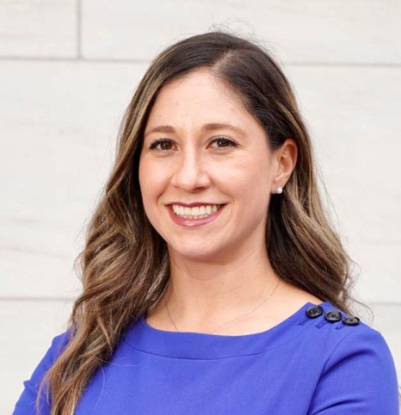
Liliana Serrano Pájaro
Liliana Serrano Pajaro is a consultant for the Inter-American Development Bank (IDB) in the “21st Century Skills” initiative and supports the implementation of training projects in Colombia and the region. His experience includes coordinating the cooperation for Latin America and the Caribbean of the human development and education programs of the Organization of American States (OAS), as well as the expansion of the OAS Consortium of Latin American Universities with governments, universities and higher education institutions. Also, she has experience supporting regional innovation initiatives that promote the use of ICTs in education. Liliana is a Social Communicator and Journalist from Universidad de la Sabana in Colombia, she has a certification in Design of Social Impact Alliances from Georgetown University in Washington, D.C. and has more than nine years of experience in the area of communications in education and development programs for Latin America and the Caribbean.

JungKyu Rhys Lim
Rhys Lim is an educator and behavioral scientist. Dr. Lim's research studies how to help people, communities, and organizations prevent, prepare for, respond to, and recover from crises and threats (such as climate change, automation, aging, migration, and health risks public). To help people better meet these challenges, Dr. Lim supports the IDB initiative that strengthens education and training ecosystems for 21st century skills. He has a Ph.D. in Communication from the University of Maryland.
Cecilia Rodríguez Alcalá
Cecilia Rodríguez Alcalá is the founder of Paraguay Educa, an NGO dedicated to providing opportunities for children and youth in Paraguay to develop life skills through Edtech. Cecilia is an advisor for the International Society for Technology in Education (ISTE) and for the educational platform META. She is currently a consultant at the Vice Presidency for Sectors and Knowledge of the IDB and is working in development projects of the social sector.
Reader Interactions
August 15, 2023 at 2:37 pm
The Green Skills for Youth to towards a sustainable world is an Agenda that needs a special attention, for this to be achieve there is a need for robust sensitization by organizing a youths Engagement at National and Communities level, for them to understand their role and responsibilities to the Green Skills For Youth towards a sustainable World. Therefore, I am kindly asking IDB to extend their support to Africa to undertake a project that will let the youth to understand what really the Green Skills for, and how Important is it to them. Kindly contact me via email [email protected] for submission of project Proposal Thank you
Leave a Reply Cancel reply
Your email address will not be published. Required fields are marked *
Save my name, email, and website in this browser for the next time I comment.

Your Name (required)
Your Email (required)
Your Message
Blog posts written by Bank employees:
Copyright © Inter-American Development Bank ("IDB"). This work is licensed under a Creative Commons IGO 3.0 Attribution-NonCommercial-NoDerivatives. (CC-IGO 3.0 BY-NC-ND) license and may be reproduced with attribution to the IDB and for any non-commercial purpose. No derivative work is allowed. Any dispute related to the use of the works of the IDB that cannot be settled amicably shall be submitted to arbitration pursuant to the UNCITRAL rules. The use of the IDB's name for any purpose other than for attribution, and the use of IDB's logo shall be subject to a separate written license agreement between the IDB and the user and is not authorized as part of this CC- IGO license. Note that link provided above includes additional terms and conditions of the license.
For blogs written by external parties:
For questions concerning copyright for authors that are not IADB employees please complete the contact form for this blog.
The opinions expressed in this blog are those of the authors and do not necessarily reflect the views of the IDB, its Board of Directors, or the countries they represent.
Attribution: in addition to giving attribution to the respective author and copyright owner, as appropriate, we would appreciate if you could include a link that remits back the IDB Blogs website.
Privacy Policy
Privacy Overview
Welcome to the United Nations
- About the General Assembly
- Schedule of Meetings
- Election of the 77th President of the General Assembly
- PGA Biography
- Vision Statement
- Transparency and Ethics
- Team OPGA 76
- Past Presidents
- Newsletters
- Meetings with Security Council President
- Press Conferences and Statements
- Spokesperson’s Briefings
- Press Releases
- GA Calendar of Events
- PGA’s Appointments
- High-level Thematic Debate of the General Assembly: Moment for Nature
- Special High-Level Dialogue on the Sustainable Development of Africa
- High-Level Special Event on Food Security
- High-Level Thematic Debate on Tourism
- Galvanizing Momentum for Universal Vaccination
- Delivering Climate Action
- Townhall with Civil Society Organizations
- High Level Forum on the Culture of Peace
- High-Level Meeting on Peacebuilding Financing
- Preparatory meeting for “Stockholm+50″
- Informal Interactive Dialogue on Commodity Markets
- High-Level Meeting on the Implementation of the New Urban Agenda
- High-Level Meeting on Trafficking in Persons
- High-Level Meeting on Global Road Safety
- International Migration Review Forum
- Meeting mandates for UNGA77 and beyond
- Deliver for Equality
- Hope Fellowship
Select Page
Remarks at World Youth Skills Day 2022: Transforming Youth Skills for the Future
15 Jul 2022
Remarks by H.E. Mr. Abdulla Shahid, President of the 76th session of the United Nations General Assembly
15 July 2022
Excellencies,
Ladies & Gentlemen,
I’m delighted to join you in today’s celebration of World Youth Skills Day.
Young people are our world’s engines of change; they are the innovators and architects of our future.
Unfortunately, those engines are not running at capacity; they are deprived of the resources needed to reach their potential.
As it stands, millions of young people, especially those who are most vulnerable and marginalized such as young women and girls, continue to be negatively affected by social, political, economic, and cultural upheaval. This includes the COVID-19 pandemic and, of course, the continued impacts of climate change.
These challenges eliminate jobs and opportunities, reduce access to education, and impede the reskilling and upskilling of young women and men.
More must be done.
With global youth unemployment at an estimated 13.6 per cent, dialogues, such as the one today, are sorely needed.
My friends,
I am a proud champion of young people, and I am encouraged by the fact that the United Nations has always supported youth initiatives, youth empowerment, and the active engagement of young people.
United Nations frameworks, such as the system-wide Youth Strategy, Youth2030, help to ensure that their voices are heard and that they are part of the decision-making processes.
Similarly, General Assembly Resolution 69/145, adopted in 2014, recognizes “ that fostering the acquisition of skills by youth would enhance their ability to make informed choices with regard to life and work and empower them to gain access to changing labour markets ”.
For my part, I have been proud to launch the Fellowship for HOPE during my presidency of the UN General Assembly. Throughout this session, eight young diplomats from underrepresented countries have had the chance to learn firsthand the inner workings of the UN; to acquire direct skills in diplomacy and to thrive in a multilateral context.
They are the legacy I hope to leave.
While we have a long way to go, I am encouraged by the broad consensus that exists towards youth empowerment across the UN and the multilateral sector.
Together, we recognize the need to empower young people, to transform and build skills for the future through policy making, education, technical and vocational training, and through access to technological advances.
Today, as you discuss progress made, and deliberate recommendations for the future, I ask that you do so with a view to strengthening our recovery from COVID-19, to advancing the 2030 Agenda for Sustainable Development, and to fueling these vital engines of our world.
Let us explore how to increase youth employment opportunities while sustainably reducing the number of uneducated and untrained young people.
Let us act collectively to ensure an inclusive and brighter future led by skillful, educated, and well-trained youths, while leaving no one behind.
Excellencies, I wish you rich and fruitful discussions.
I thank you.
United Nations
A-Z Site Index | Contact | Copyright | Fraud Alert | Privacy Notice | Terms of Use

- SUBSCRIBE --> Subscribe
- Arts & Culture
- Civic Engagement
- Economic Development
- Environment
- Human Rights
- Social Services
- Water & Sanitation
- Foundations
- Nonprofits & NGOs
- Social Enterprise
- Collaboration
- Design Thinking
- Impact Investing
- Measurement & Evaluation
- Organizational Development
- Philanthropy & Funding
- Current Issue
- Sponsored Supplements
- Global Editions
- In-Depth Series
- Stanford PACS
- Submission Guidelines

Preparing Today’s Youth for Tomorrow’s World
In a world of rapid change, young people need the right mix of skills to thrive. Access to information is increasing, and memorizing facts is less important today than in the past. Although academic skills remain important, they are not sufficient to foster thoughtful, productive, and engaged citizens. Young people everywhere need to develop a greater breadth of skills to evaluate and apply knowledge in ways that meet the new demands of our changing social and economic landscape.
Skills like communication, teamwork, critical thinking, and flexibility have always been important for work and life. But they will be even more crucial for future generations. Rapid advances in technology are transforming the world of work, and by 2020 an estimated 83 million jobs around the globe will go unfilled due to lack of skills. We are also more connected than ever before, and complex global challenges such as climate change and health epidemics call for leaders and citizens who are able to collaborate with diverse groups to solve problems.
This series, produced in partnership with the Center for Universal Education at Brookings , aims to spark a global dialogue and promote increased understanding of how to develop the skills and learning that all children need for success in their lives and livelihoods.

Why Matchmaking in Youth Employment Programs in Middle East North Africa Aren’t Working
By Mayyada Abu Jaber 3
Insights from 10 years working on youth employment program matchmaking.

More Girls in STEM Means Improving STEM Teacher Training
By Adefunke Ekine 2
Providing teachers with gender sensitivity training is a first step toward addressing gender inequality in STEM. But it’s not the last.
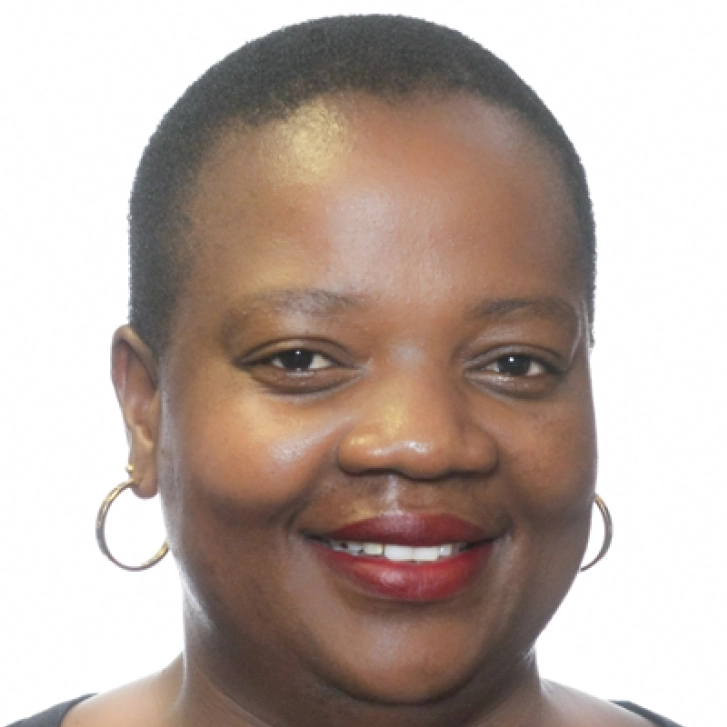
Keeping Children in School During Natural Crises
By Ellen Chigwanda 3
In the context of a changing climate, how can we ensure that schoolchildren who live in rural areas are consistently able to attend school?


Ten Trends in Girls’ Education
By Christina Kwauk, Amanda Braga, & Nora Fyles 2
To achieve the Sustainable Development Goals related to inclusive education and gender equality, we need to examine how girls’ education has changed since 2015.

Developing Breadth of Learning
By Seamus Hegarty 1
Students need broader learning opportunities in school to help prepare them for the uncertainties of the future.

It’s Time to Mobilize Around a New Approach to Educational Assessment
By Alvin Vista and Esther Care
How can we engage vested interests in a move toward the kinds of assessments we increasingly need to measure a breadth of skills, when maintaining the status quo is easier (and profitable)?

Education is Changing. It’s Time Assessment Caught Up
By Esther Care & Alvin Vista 36
To prepare students for the job markets that will await them, let’s focus on the skills, not the scores.

Intervene Early, Intervene Well
By Emily Gustafsson-Wright & Sophie Gardiner 1
Impact bonds supporting early childhood development can bridge capital gaps, improve the quality of services, and establish effective data-sharing systems.

Learning Progressions: Road Maps for 21st-Century Students—and Teachers
By Helyn Kim & Claire Scoular 9
To equip today’s students for the future, we need to understand the fundamental building blocks of complex skills, and apply that understanding to teaching practices and assessments.

Redefining Teacher Development to Great Effect in Honduras
By Becca Shareff & Erin Murphy-Graham
A different approach to developing teachers helps rural students access secondary education, and also has an immediate and positive impact on their communities.

When Schooling Doesn’t Mean Learning
By Rukmini Banerji 9
In India, a simple, citizen-led assessment is helping citizens gauge children’s learning levels—and challenging a deep-seated belief that going to school means getting an education.

The ‘Secret Sauce’ to Scaling Up Quality Education in Developing Countries
By Julia Gillard & Jenny Perlman Robinson
There is no rigid recipe for scaling quality learning, but successful efforts require attention to design and delivery, stable access to finance, and an enabling policy environment.

Systems Change in Education: It Begins With Us
By Valentina Raman & Ross Hall 3
To make education systems more adaptive, innovative, collaborative, and empathic, we as change leaders must first model these characteristics ourselves.

The Messy Middle: Managing the Challenges of Scale-up
By Becky Telford & Kate Radford
Five lessons on scaling educational technology for the most vulnerable children.

Press Button to Complete School
By Greg Toppo 1
Like games, classes aren’t interesting when the skills they require are too easy to master and there’s no chance of failure.

Using Technology to Teach the Art of Asking Questions
By Eileen McGivney & Paul Kim 3
Technological innovations have the potential to transform education, but only if they encourage a more active learning environment that fosters critical thinking.

How Can We “Leapfrog” Educational Outcomes?
By Rebecca Winthrop 2
Innovations will need to address inequity and embrace a broader range of skills than most schools currently teach.

Why Walking Is So Good for Parents, Toddlers, and the Cities Where They Live
By Michael Feigelson 4
How can making a city more walkable improve early childhood development?

Poor Kids Learn Like Rich Kids and All the Kids in Between
By Kathy Hirsh-Pasek & Roberta Michnick Golinkoff 4
In an era when low-income children are offered different learning opportunities than rich children, we must work to provide all kids the high-quality educational experience that the 21st century demands.

Transforming Cities into Learning Landscapes
By Kathy Hirsh-Pasek & Roberta Michnick Golinkoff 1
Cities can create outside-the-classroom learning opportunities for low-income children by encouraging communities to reimage everyday locations in their neighborhoods as places for playful learning.
Rethinking Education in a Changing World
By Rebecca Winthrop & Eileen McGivney 10
How can we ensure all children across the globe learn the skills they need to be successful in an increasingly interconnected, technologically advanced world?
RELATED CONTENT FROM SSIR
- Redefining Education in the Developing World
- Forging a New Deal in Education
- Schools Aren’t Just Buildings
- The Missing Link in Girls’ Education
SSIR.org and/or its third-party tools use cookies, which are necessary to its functioning and to our better understanding of user needs. By closing this banner, scrolling this page, clicking a link or continuing to otherwise browse this site, you agree to the use of cookies.

IMAGES
VIDEO